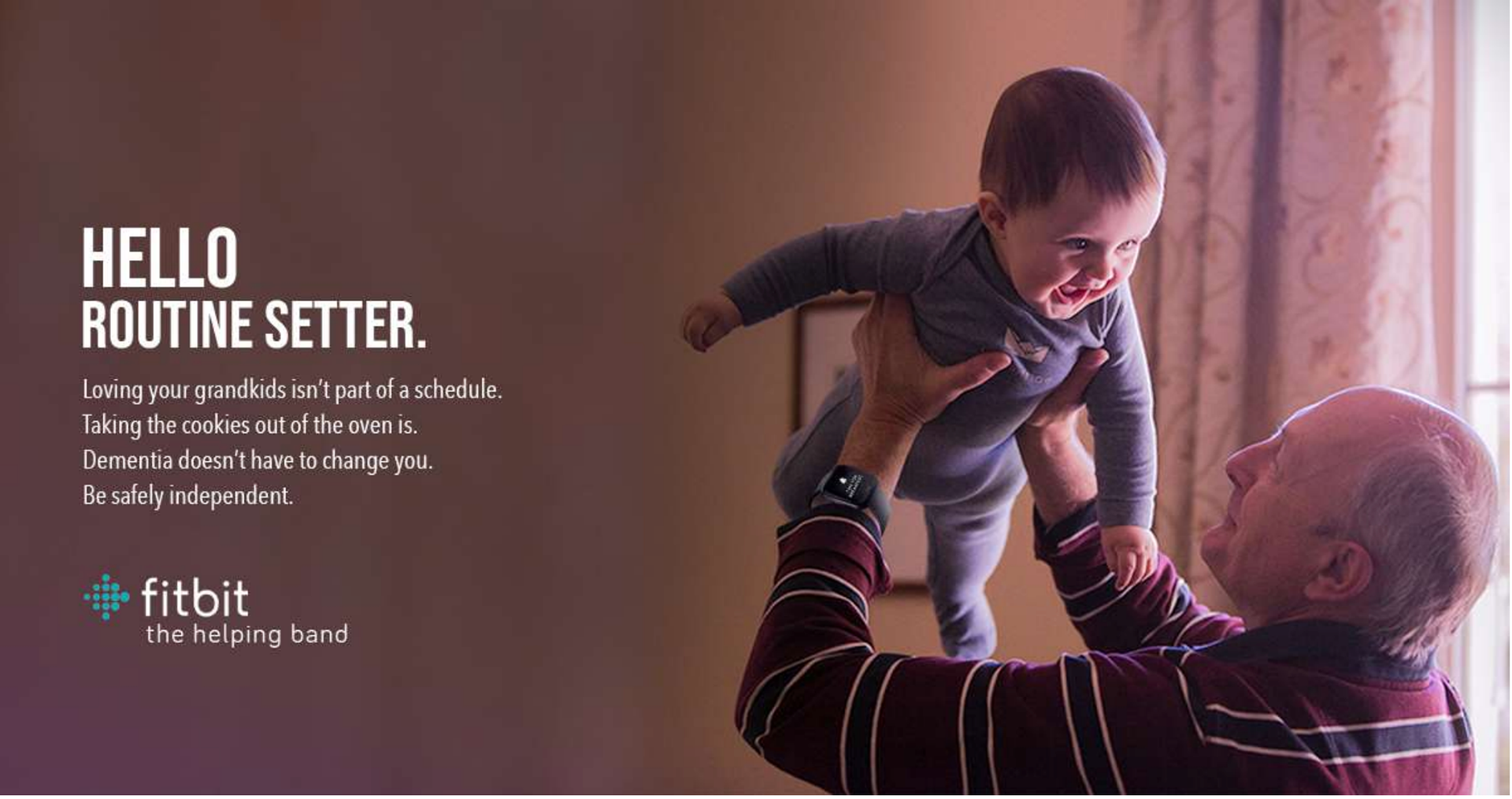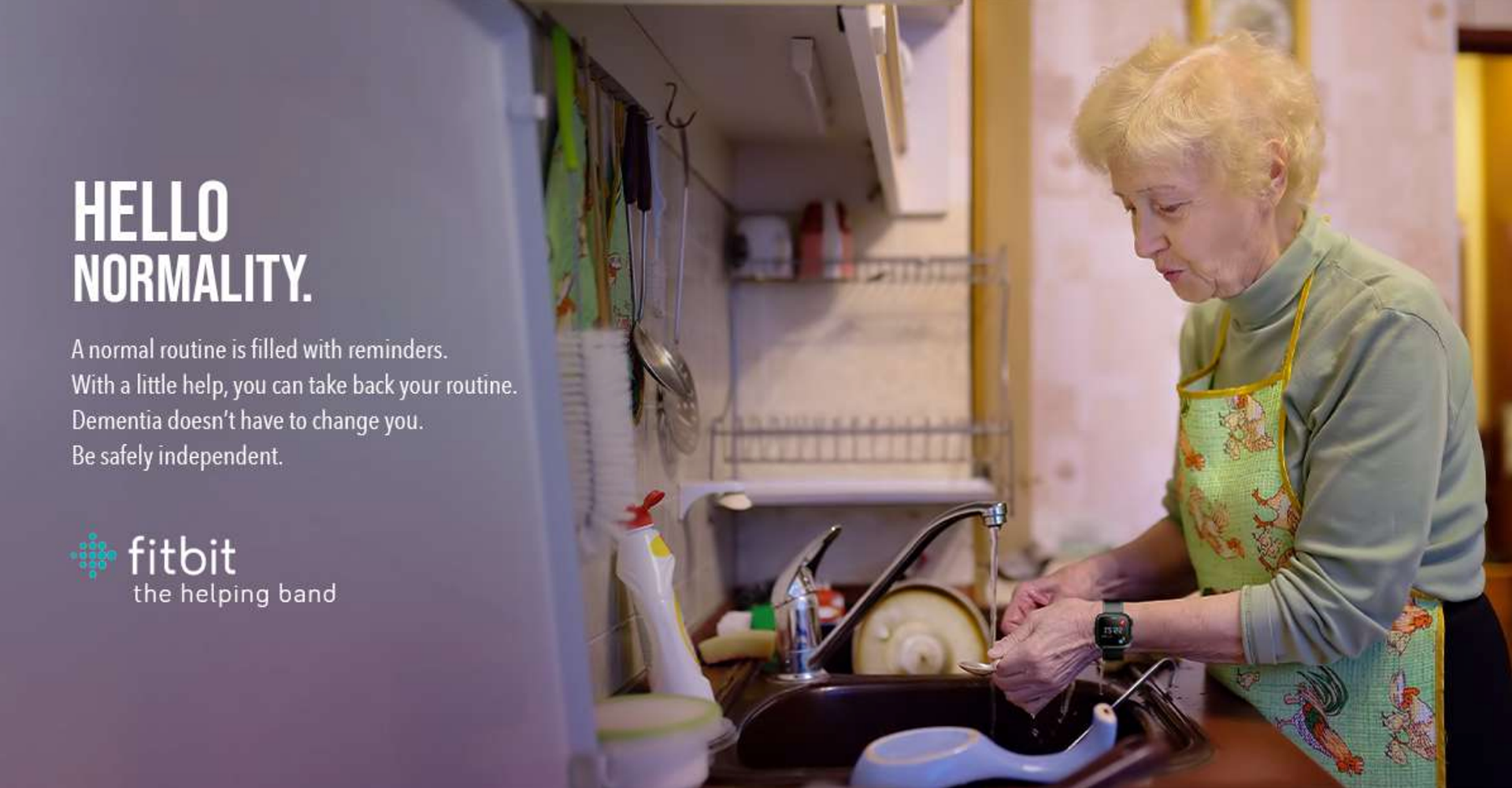Brief: By 2025, 1 million people in the UK will have developed dementia. Create a campaign to help people who are suffering with dementia, as well as their loved ones, throughout this difficult time.
Research: One of the main issues with the early stages of dementia is finding the balance between the affected person keeping their independence and their family worrying about their safety. It is common for dementia sufferers to wander off and become confused, leading to agitation and possibly injury.
Concept: A tracking band that gives the family of the wearer peace of mind by allowing them to check in with them in a non-evasive way. It also gives prompts to the wearer about their routine, and a way to easily get in touch with family if they become distressed.
Research - talking to people who have lost a loved on to dementia
Our research led to the creation of The Helping Band which has features to make the person with dementia's life easier, allowing them to hold onto their independence for as long as possible. Family members can also benefit from the product as they receive alerts and can interact with the watch from afar.
By partnering with Fitbit we can make use of their existing technology to create The Helping Band and it's interactive app.
Downloading the app allows family members to connect to the watch, and interact with it at any time, for example setting reminders. They will also receive alerts and updates to their phone about the person with dementia if they are struggling, such as if it detects an extreme change in heartrate, or the person leaving the house in the middle of the night.
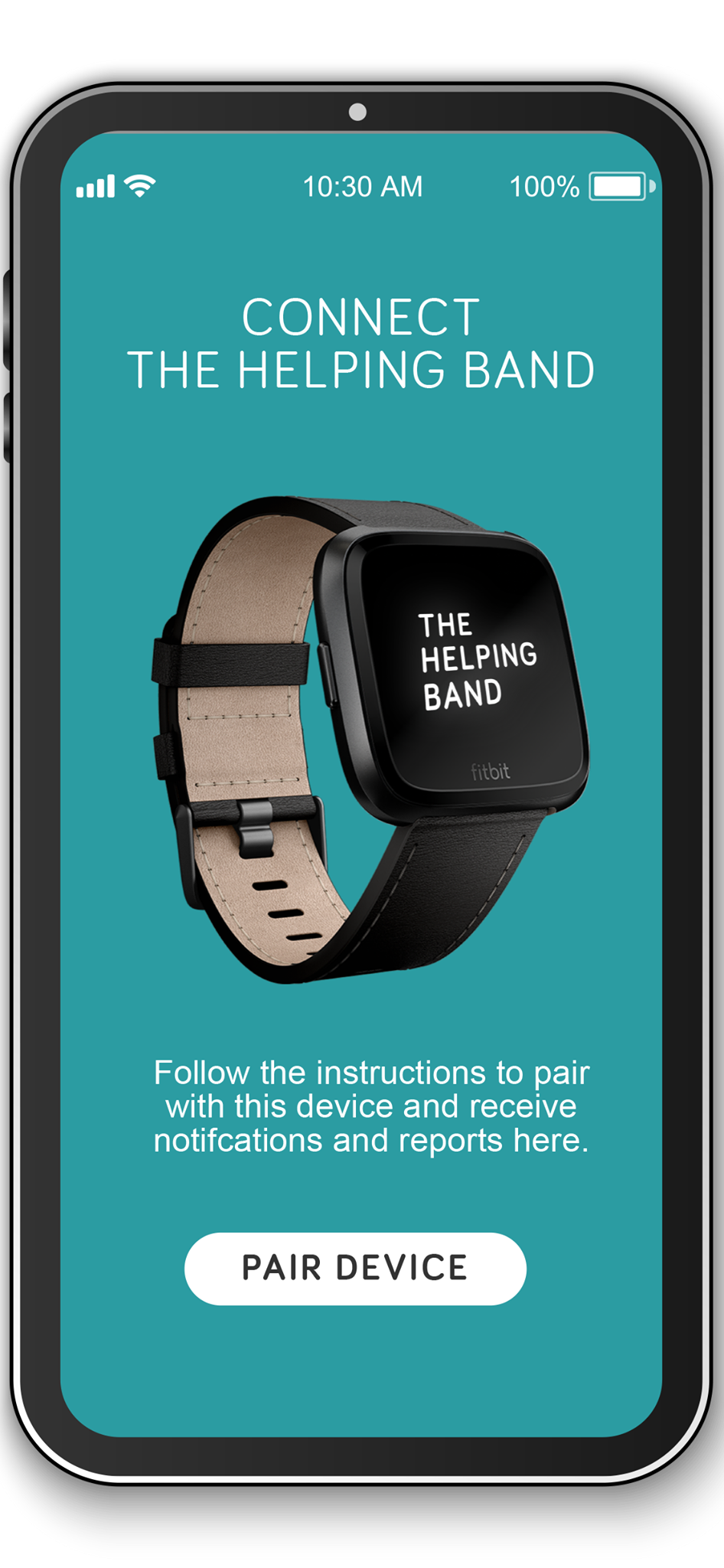

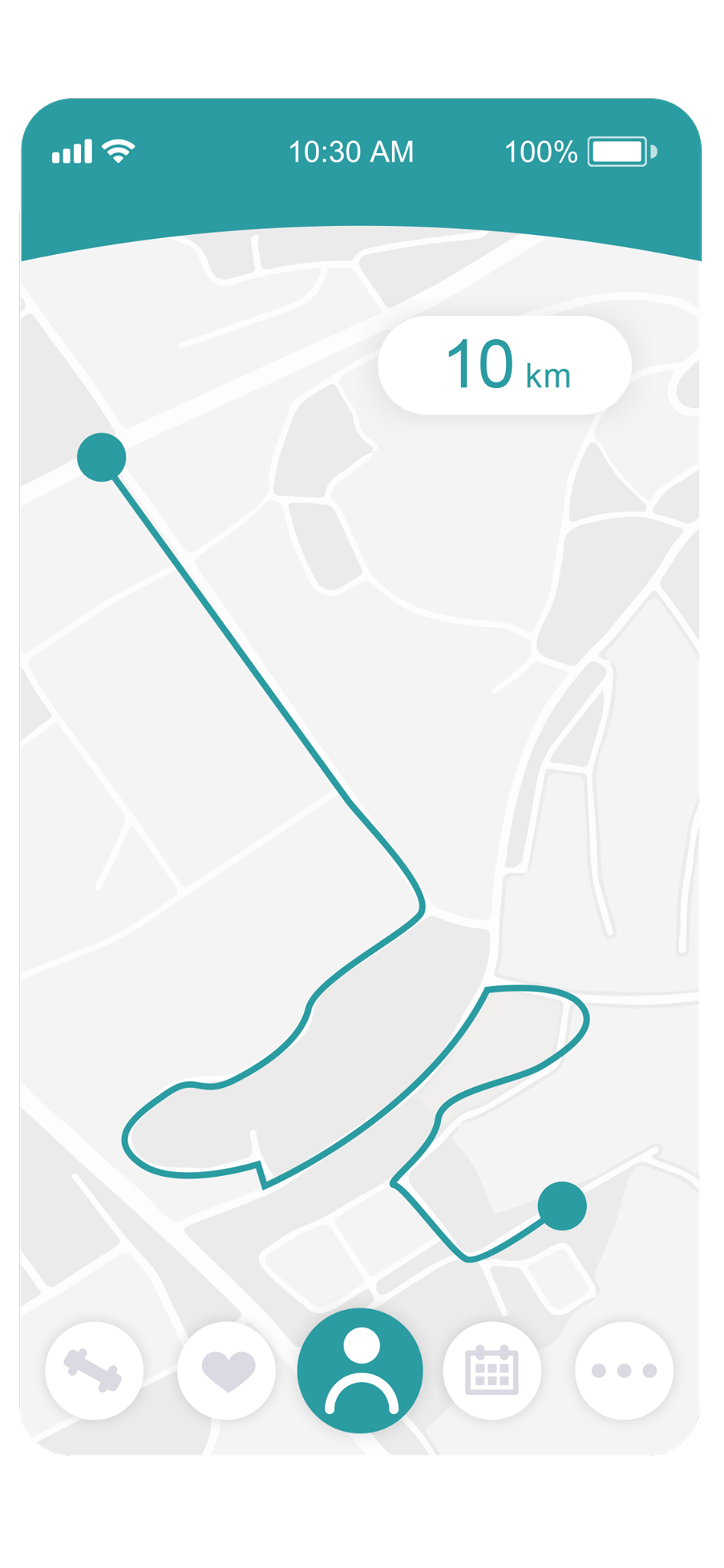
The target market for The Helping Band is both the people who are in the early stages of dementia who will use the band, and the loved ones of this person who might buy the band for them. Both of these groups will go through a different experience and will respond to different messaging, therefore we will target them separately.
We will introduce The Helping Band through promotion on the Fitbit website and direct mail to target family members and friends of someone suffering with dementia with a message about how to be there for the person while respecting their independence.
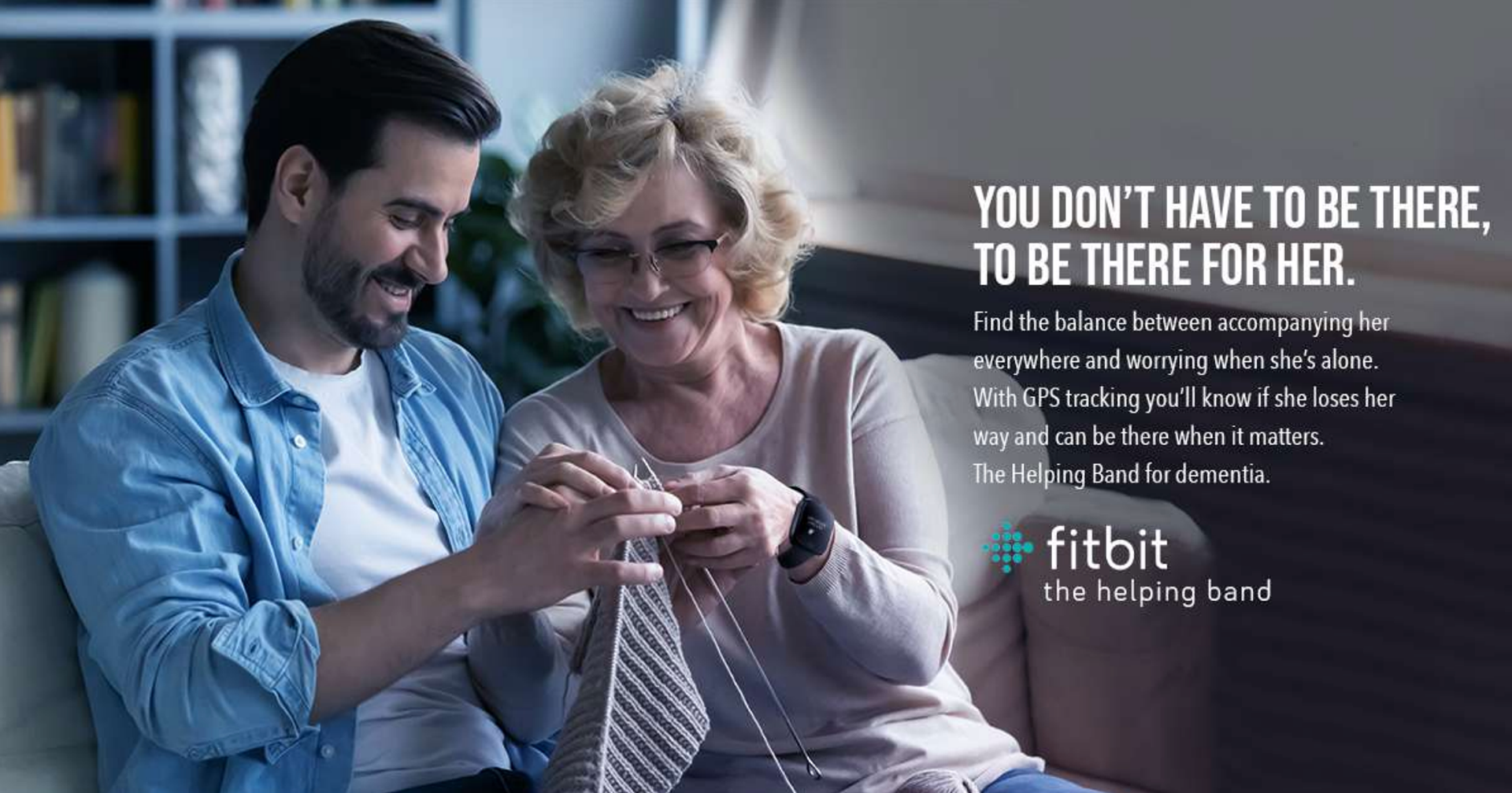

We will address people who are showing signs of dementia through posters in GP and hospital waiting rooms. These posters will speak directly to them and talk about the the benefits of the product from their perspective.
